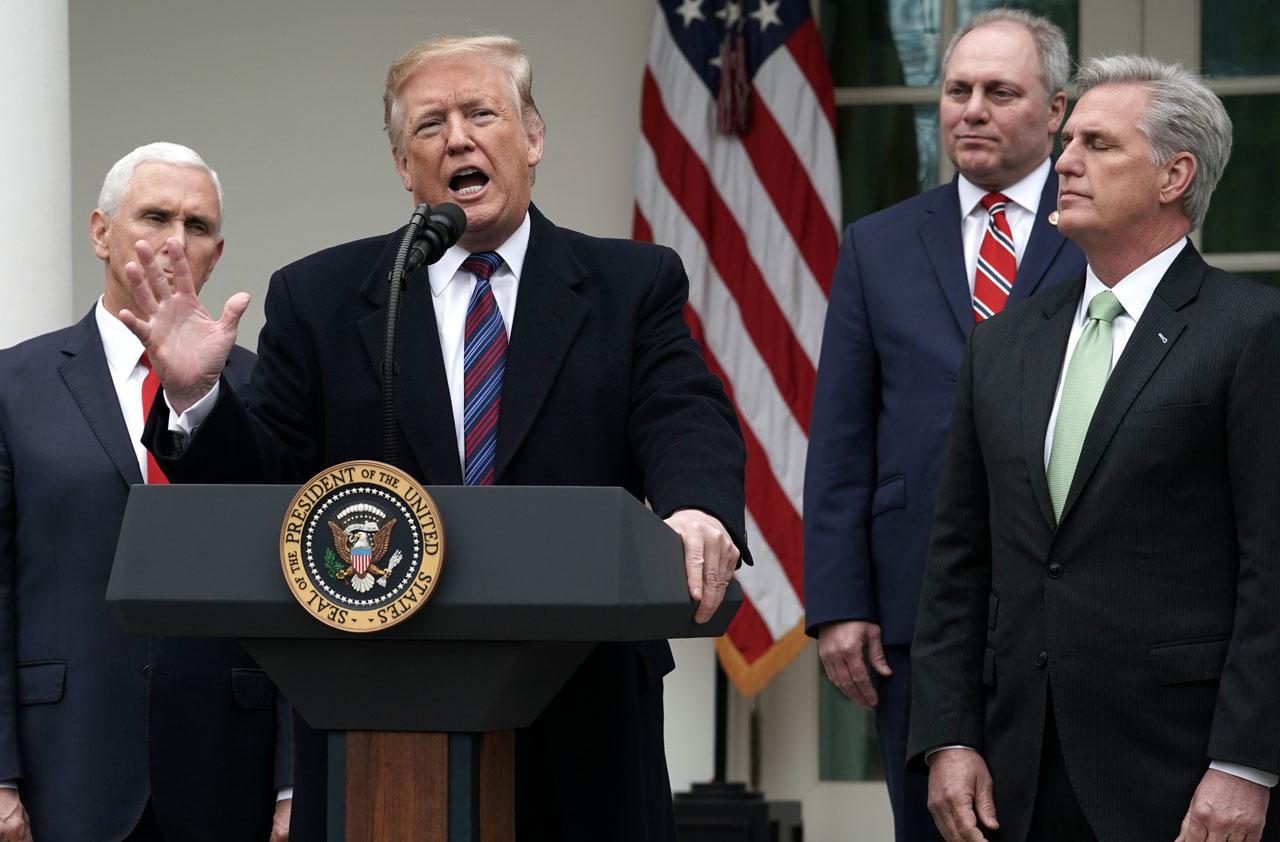Current Challenges Highlight U.S. Foreign Policy Weakness: The Kiplinger Letter
America’s military is overextended but the U.S. remains the country of first resort when major problems crop up.


Profit and prosper with the best of Kiplinger's advice on investing, taxes, retirement, personal finance and much more. Delivered daily. Enter your email in the box and click Sign Me Up.
You are now subscribed
Your newsletter sign-up was successful
Want to add more newsletters?

Delivered daily
Kiplinger Today
Profit and prosper with the best of Kiplinger's advice on investing, taxes, retirement, personal finance and much more delivered daily. Smart money moves start here.

Sent five days a week
Kiplinger A Step Ahead
Get practical help to make better financial decisions in your everyday life, from spending to savings on top deals.

Delivered daily
Kiplinger Closing Bell
Get today's biggest financial and investing headlines delivered to your inbox every day the U.S. stock market is open.

Sent twice a week
Kiplinger Adviser Intel
Financial pros across the country share best practices and fresh tactics to preserve and grow your wealth.

Delivered weekly
Kiplinger Tax Tips
Trim your federal and state tax bills with practical tax-planning and tax-cutting strategies.

Sent twice a week
Kiplinger Retirement Tips
Your twice-a-week guide to planning and enjoying a financially secure and richly rewarding retirement

Sent bimonthly.
Kiplinger Adviser Angle
Insights for advisers, wealth managers and other financial professionals.

Sent twice a week
Kiplinger Investing Weekly
Your twice-a-week roundup of promising stocks, funds, companies and industries you should consider, ones you should avoid, and why.

Sent weekly for six weeks
Kiplinger Invest for Retirement
Your step-by-step six-part series on how to invest for retirement, from devising a successful strategy to exactly which investments to choose.
To help you understand what is going on in politics and in U.S. foreign policy, our highly experienced Kiplinger Letter team will keep you abreast of the latest developments and forecasts (Get a free issue of The Kiplinger Letter or subscribe). You'll get all the latest news first by subscribing, but we will publish many (but not all) of the forecasts a few days afterward online. Here’s the latest…
After years of focusing primarily on China, U.S. foreign policy will be more complicated in the final year of President Biden’s current term. Every move Biden makes, and every criticism of it, will be made with an eye on the elections in November.
One region requiring immediate attention is the Middle East, where the U.S. is involved in at least two interlocked and escalating crises. First up: The Israel-Palestine conflict, which is now threatening to turn into a wider war between Israel and other Iran-backed militants, most notably Hezbollah in neighboring Lebanon. Then, terrorist attacks in the Red Sea, perpetrated by Houthi militants who say they are retaliating against countries that back Israel. The attacks have scrambled global shipping patterns and forced the U.S. to step in to preserve freedom of navigation in this vital waterway. Before the attacks, the Red Sea handled up to 15% of global trade.
From just $107.88 $24.99 for Kiplinger Personal Finance
Become a smarter, better informed investor. Subscribe from just $107.88 $24.99, plus get up to 4 Special Issues

Sign up for Kiplinger’s Free Newsletters
Profit and prosper with the best of expert advice on investing, taxes, retirement, personal finance and more - straight to your e-mail.
Profit and prosper with the best of expert advice - straight to your e-mail.
The White House wants limited involvement and limited conflict, addressing individual problems before they result in a regionwide conflagration. That is becoming more difficult, especially after a recent drone attack that killed three U.S. troops, putting additional pressure on Biden to retaliate and potentially ratchet up tensions with Iran, believed to be behind the attack. Note that additional military aid for Israel is now tied up in Congress. So, too, is further assistance for Ukraine, which has reached a turning point in its ongoing efforts to resist Russia’s invasion. Without additional military aid, Kyiv may no longer be able to hold Moscow back. The EU is also ponying up more aid for Ukraine, but the country’s forces will struggle without more help from the U.S. The situation has European military planners thinking the once unthinkable: What if Russia were to invade a NATO country? Germany’s defense minister fears Moscow could try to crack the transatlantic military alliance in the next decade, perhaps sooner, unless member states beef up their defenses to better deter Russia.
The U.S. is similarly worried about a possible Chinese invasion of Taiwan, a once-distant prospect that could now possibly occur before the end of the decade. One factor working in China’s favor: America’s military is overextended, and the U.S. remains the country of first resort when major problems crop up, as evidenced by its role in the Red Sea crisis, where few allies are equipped to help.
Short-term challenges highlight a long-term worry of U.S. foreign policy: The U.S. will eventually have to choose which commitments it can afford to keep, or the current global order will crumble on its watch. Biden started this process — for good or ill — by withdrawing from Afghanistan in 2021. The final outcome is unclear.
This forecast first appeared in The Kiplinger Letter, which has been running since 1923 and is a collection of concise weekly forecasts on business and economic trends, as well as what to expect from Washington, to help you understand what’s coming up to make the most of your investments and your money. Subscribe to The Kiplinger Letter.
Profit and prosper with the best of Kiplinger's advice on investing, taxes, retirement, personal finance and much more. Delivered daily. Enter your email in the box and click Sign Me Up.

-
 Quiz: Do You Know How to Avoid the "Medigap Trap?"
Quiz: Do You Know How to Avoid the "Medigap Trap?"Quiz Test your basic knowledge of the "Medigap Trap" in our quick quiz.
-
 5 Top Tax-Efficient Mutual Funds for Smarter Investing
5 Top Tax-Efficient Mutual Funds for Smarter InvestingMutual funds are many things, but "tax-friendly" usually isn't one of them. These are the exceptions.
-
 AI Sparks Existential Crisis for Software Stocks
AI Sparks Existential Crisis for Software StocksThe Kiplinger Letter Fears that SaaS subscription software could be rendered obsolete by artificial intelligence make investors jittery.
-
 Trump Reshapes Foreign Policy
Trump Reshapes Foreign PolicyThe Kiplinger Letter The President starts the new year by putting allies and adversaries on notice.
-
 Congress Set for Busy Winter
Congress Set for Busy WinterThe Kiplinger Letter The Letter editors review the bills Congress will decide on this year. The government funding bill is paramount, but other issues vie for lawmakers’ attention.
-
 The Kiplinger Letter's 10 Forecasts for 2026
The Kiplinger Letter's 10 Forecasts for 2026The Kiplinger Letter Here are some of the biggest events and trends in economics, politics and tech that will shape the new year.
-
 Special Report: The Future of American Politics
Special Report: The Future of American PoliticsThe Kiplinger Letter Kiplinger assesses the political trends and challenges that will define the next decade.
-
 What Services Are Open During the Government Shutdown?
What Services Are Open During the Government Shutdown?The Kiplinger Letter As the shutdown drags on, many basic federal services will increasingly be affected.
-
 Banks Are Sounding the Alarm About Stablecoins
Banks Are Sounding the Alarm About StablecoinsThe Kiplinger Letter The banking industry says stablecoins could have a negative impact on lending.
-
 Trump's Economic Intervention
Trump's Economic InterventionThe Kiplinger Letter What to Make of Washington's Increasingly Hands-On Approach to Big Business
-
 What is AI Worth to the Economy?
What is AI Worth to the Economy?The Letter Spending on AI is already boosting GDP, but will the massive outlays being poured into the technology deliver faster economic growth in the long run?